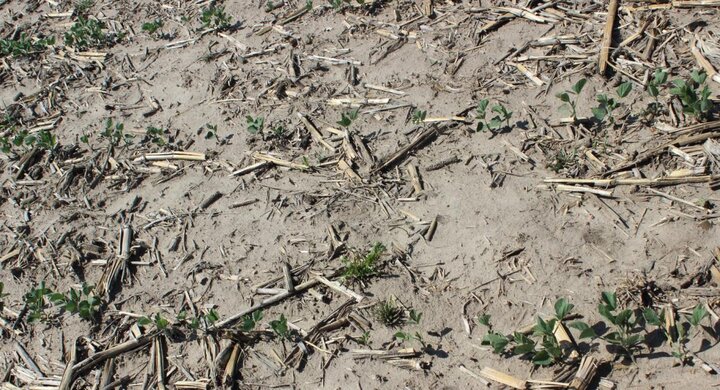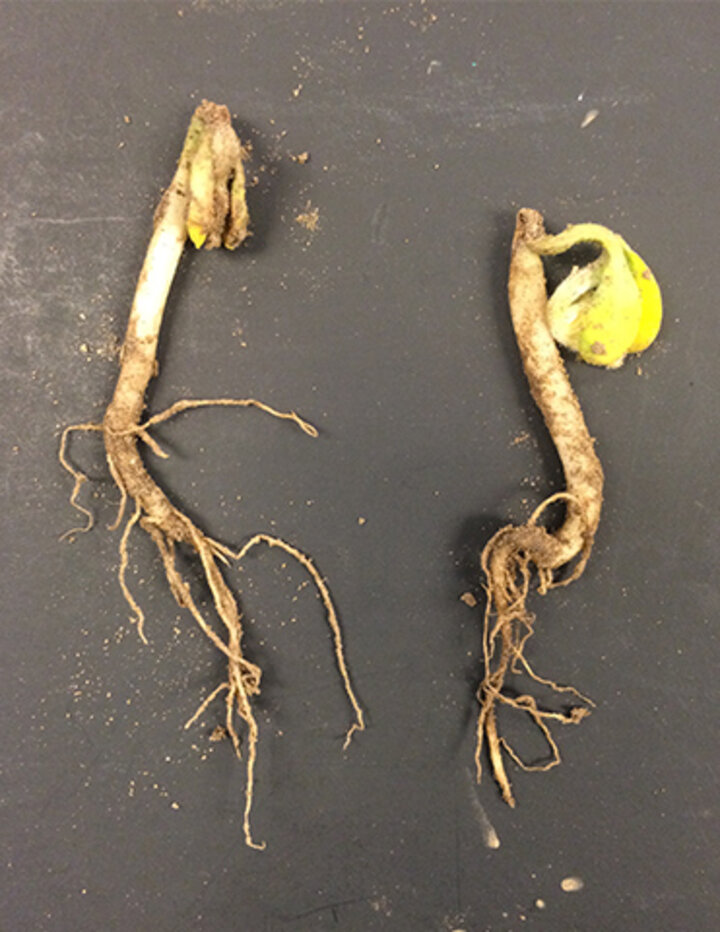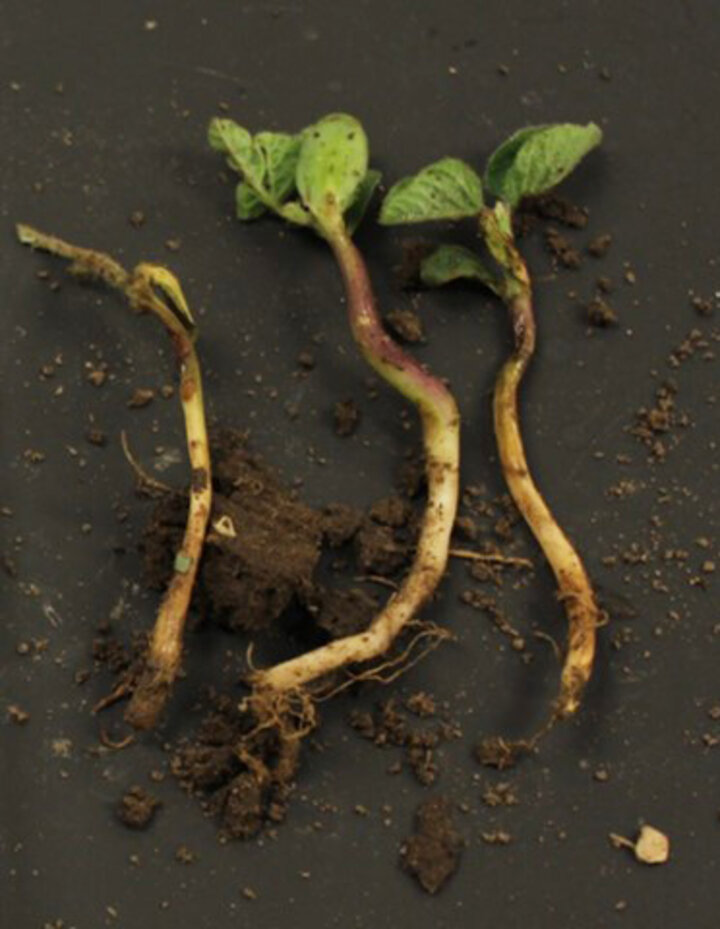
In this Keith County field the hypocotyl of some seedlings appeared burnt (Figure 2), which was indicative of injury caused by a Group 14 herbicide. (Group 14 herbicides are PPO inhibitors and cell membrane disruptors.) Interaction of herbicide injury and pathogen infection (pre- and post- emergence damping off caused by Fusarium or Rhizoctonia root rot) were also observed in some seedlings (Figure 3).
According to the grower, a soil residual herbicide (a premix of Groups 2 [ALS inhibitor] and 14 [PPO inhibitor]) had been applied a week before planting. Due to dry conditions at emergence and high soil compaction in certain parts of the field, the grower decided to irrigate to help soybean emergence. The herbicide that was still on the soil surface (not incorporated into the soil due to lack of precipitation) might have splashed onto emerging soybean hypocotyls during the irrigation event, causing severe injury (Figure 2) and potential wounds for pathogen infection (Figure 3).
With the widespread occurrence of herbicide-resistant weeds, soil-applied herbicides are becoming an important tool for weed management. Understanding the nature of these herbicides becomes essential to avoid situations as observed in Figures 1, 2, and 3. Keep in mind that under stressful conditions, soybean seedlings may not be able to quickly metabolize some of these herbicides, which may lead to injury and poor stands. Typically, the risk of injury is higher in lighter soils with low organic matter. Also, seedling diseases are favored by conditions that are stressful to the plant.
Research evaluating the interaction among soil type, herbicide mode of action, soybean variety, and likelihood of pathogen infection is underway by UNL pathologists and crop specialists.
Resources
See herbicide groups and their active ingredients in this Herbicide Modes of Action Chart from the 2016 Guide for Weed, Disease, and Insect Management in Nebraska.


